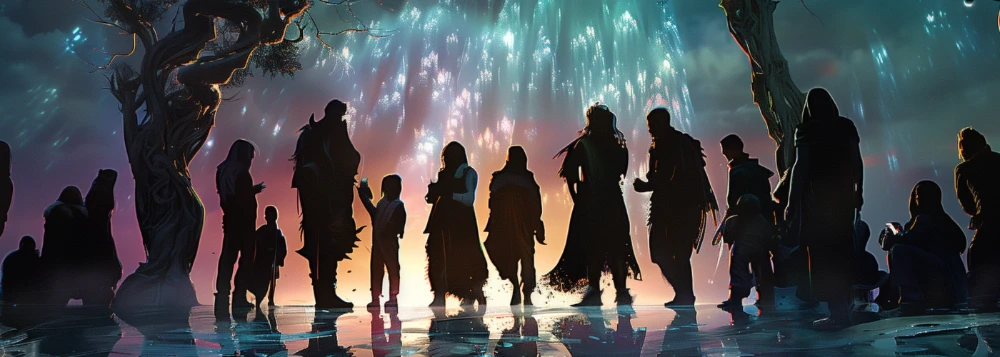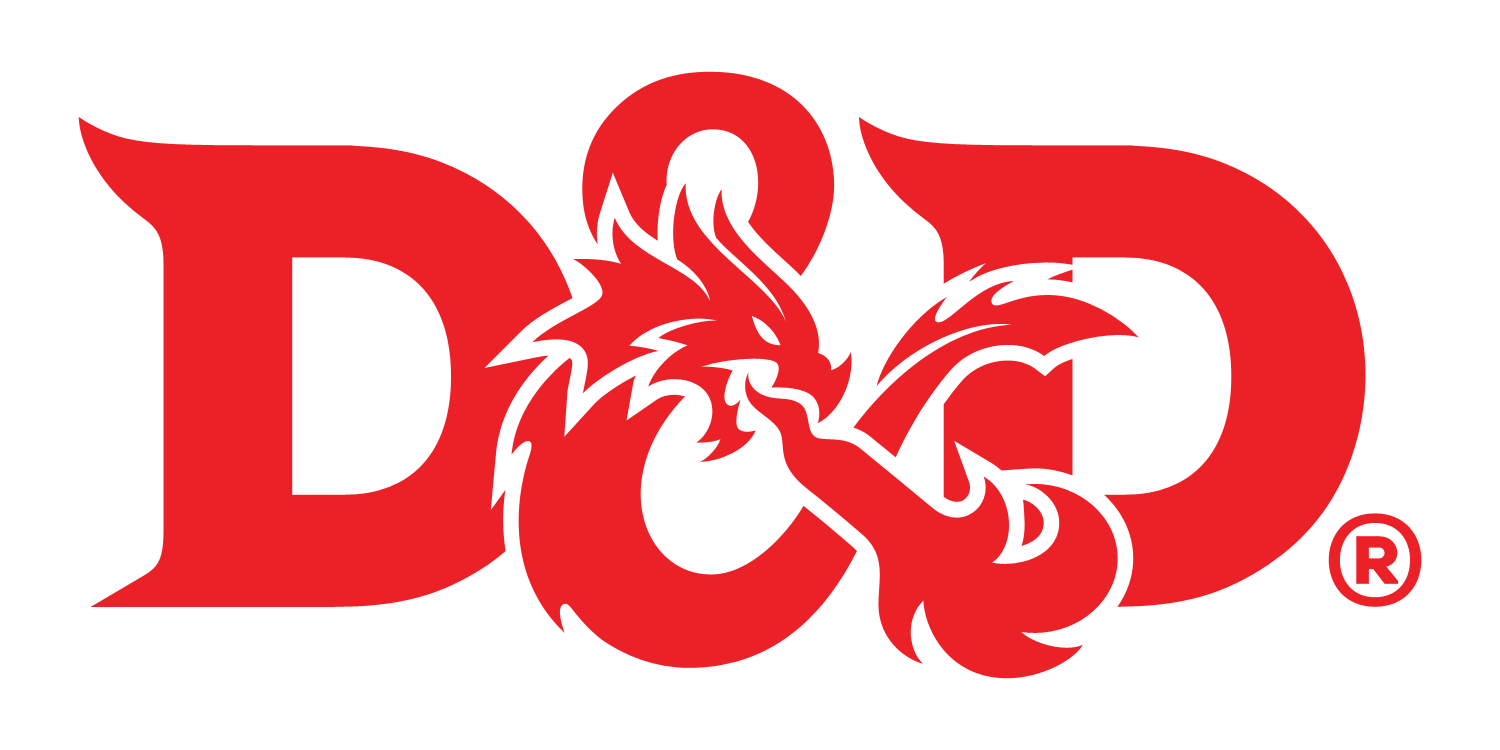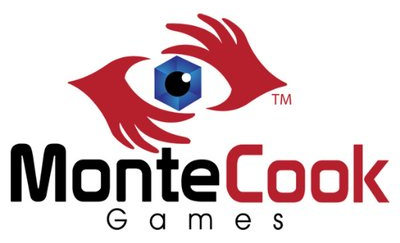Connections
Connections tie your character to their Path and the world around them in a vital way. A Path’s Connections are the people and resources the character can access thanks to the Path. Each connection can be one of two different types: Contacts and Groups, both of which can open up Access to unique places, potent resources or rare items. Keep in mind that your characters are the main stars of the campaign and their connections are backgrounds elements, usually called in for a scene to fill in gaps or extend your reach. A connections expertise is represented using Tags. Your character can call on their connections, though these efforts are not without limits.
Each connection can do three things:
Alice a Tavern Maid is a source of Information
Garris a Bodyguard is Dangerous
Sarko is a Vampire Proxy Sire acting as a Mentor
Illmahgo is a Vampire Baron acting as a Friend in a High Places
Bellringers’ Guild out of Oldtown for Information but not the Guilds of Ptolus
Pale Dogs of the Warrens for Fencing but not the Criminal Underground of Ptolus
A Kindred member of the Ventrue of Ptolus for Clan
A Kindred member of the Veiled of Ptolus for Covenant
Library of the Delvers Guild in Midtown
Zel’s Poultice Shop in South Market
Nestlin Ka, the majordomo of House Dallimothan to attend a gala
Cruac Blood Altar in a Circle of Dust ritual room
Group Connection
Contact Connection
When you leverage a connection, you may ask, encourage, threaten or otherwise convince their connection to act on their behalf. Remember your characters narrative determines your skill + attribute selection and possible consequences of refusal, so narrative always precedes mechanics. Once you declare which of your connections you’re invoking, roll an appropriate Skill + Attribute + Connection Rating (not path rating). Failure may mean, "... you again beat it or so glad to see you, this is what we need!"
Persuasion to convince or encourage
Command to intimidate or threaten
Larceny to lie or to deceive
Empathy for the sympathy plea
The Storyguide may increase Complications based on circumstances of the situation or the personal danger for the connection. And the Storyguide may also decide that a certain task is so far beyond a connection and they they refuse or cannot succeed.
Is the request beyond the their expertise?
Is the request dangerous?
Has the character maintained poor relations?
In a great (difficulty 1) relationship, your character and their contact get along well, trust each other, help each other out, and have each worked hard to keep it that way.
In a fair (difficulty 2) relationship, your character and their contact are friendly and can rely on each other for help from time to time.
A neutral (difficulty 3) relationship is distant and businesslike. Neither character expects anything from the other without proper compensation, but with it, each provides reliable help.
A poor (difficulty 4) relationship is cold and standoffish. The contact will help your character if they can gain from it, and vice versa—but your character may have requested aid a few too many times without repaying the contact.
A dire (difficulty 5) relationship is as bad as it gets without characters being rivals or enemies. They’ll help each other, grudgingly, if the price is right, though they’d probably both be happier if they never saw one another again. There’s even a risk that the contact might sell your character out, and the contact wouldn’t expect any better from your character.
A relationship may move between these classifications during play. A relationship cannot become better than great, and if it becomes worse than dire, then your character loses the contact permanently.
During an adventure, your character can request aid from a contact, or the contact may request aid from your character. Who the contact is and what they do helps govern the kind of aid they can provide, at the GM’s discretion. Typically, a contact can provide aid in the form of one or two of the following:
Facilitate access to specialized equipment, rare resources, a workshop relevant to their needs, or advanced training
Provide information that would otherwise be difficult or impossible to obtain
Make arrangements to make things easier for your character during an adventure, such as by leaving a specific door unlocked or hiding a supply cache in an agreed-upon location
As you can see, connections are a double-edged sword, equal parts advantage and disadvantage.
Provide medical aid or a similar specialized service
Help your character reach a specific location
The aid a contact needs in turn is also specific to each contact. Common examples include the following:
Resources, whether rare (like an amber figurine) or not so rare (like money)
Specific information
Access to a particular location
Protection from others
A character can ask a contact for aid by means of a Gravitas + Persuasion test with a difficulty based on the relationship’s classification. Offering something in return reduces the difficulty at the GM’s discretion, with more substantial compensation reducing the difficulty further. You may also reduce the difficulty by up to 2 at the cost of downgrading the relationship classification by one step (from great to fair or from neutral to poor, for instance) after the current adventure ends— insisting on the importance of your request makes your contact more likely to grant it but places strain on your relationship.
If you pass the skill test, the contact provides the aid your character has requested. On a failure, the contact insists they are in no position to assist or offers other explanations or excuses. A new offer of compensation might allow for another skill test with a revised difficulty, though the GM might determine the contact is currently unwilling to provide aid regardless of incentives.
Your character might also request a work opportunity from a contact, asking whether they have anything they need done and offering to do it. Your character can offer to help without compensation if they wish; if they do so, for each job they complete, the relationship classification improves by one step (to a maximum of great). If the relationship is already at the great classification, then your character gains a free favor (see Favors, page 55) for every job done without compensation.
When a contact asks your character for aid or to do a job, it’s up to you whether to help them, and your character is welcome to request compensation in return. However, if your character chooses not to help them and has no adequate excuse (as determined by the GM), the relationship may worsen, dropping to the next step down.
Reputation represents your character’s standing within a particular faction and how well regarded they are by the faction’s other members. If your character belongs to a faction, their reputation within it is normally a number between 5 and 10, but it can be higher or lower in some unusual circumstances. Normally, if your character’s reputation is less than 5, they’re considered a contact of the faction rather than being a member or associate of it.
1 - Contact of the faction
2+ Member or associate of the factionInfluence is your character’s status and power within a faction: it’s a rough estimate of how much your character’s opinion and agenda matter to the faction. Influence is a number between 0 and 5, with 1 representing minimal say in matters and 5 representing a significant ability to influence others. If your character has an influence of 0, then they have no influence at all, though this also means that few people pay them any mind, which can prove an advantage in some circumstances. Servants often have an influence of 0 with their employers—they’re part of the relevant faction, but not a part with any power.
Your character’s reputation and influence change over time. It is entirely possible to have a high reputation and a low influence, or vice versa: a trusted servant may have a high reputation, but their influence is likely minimal beyond an occasional word in their employer’s ear, while an unpopular, tyrannical leader may have a low reputation but a high influence.
Each connection can do three things:
- Help your character achieve their goals and provide opportunities your character would otherwise lack
- Request things of your character, serving as a source of adventures or extra goals to achieve
- Be threatened by your character’s enemies
Your paths grant starting connections and connection dots which vary slightly based on system and setting.
Each Path grants you a connection and one or more tag points to invest. You may spend these points on either gaining additional connections or making a single connection better. Each begins with one dot and one tag. Each additional point placed in a connections adds an additional dot or tag.
Contact Connections
Contact Connections or simply contacts are people related to or gained on the Path, and with whom the character has a relationship. This relationship can be familial, platonic, romantic, competitive, strained, or something else entirely. The contact has some expertise related to the Path and is inclined to do a favor or two for the character.Contact & Tag Examples ...
Group Connections
Group Connections or simply groups are a well-defined collection of people who share a similar Path or are directly related. Your character is deeply involved in this group either as a member or as someone trusted by them. Maintaining Group Connections takes a great deal of effort, therefore, the character does not have a connection to all of these groups; the player must choose one. Some groups may only be joined with certain path choices, like vampire Clan and Covenant. And some path choices preclude other choices like being turned by the blood of a Vampire Clan. Group connection are also known as factions, community, and organizations.Group & Tag Examples ...
Access
Access is a specialized place or object associated with a given Path. The Access may be a place or location granting an enhancement to research the bane of a creature. It may allow the character to borrow a rare item for a short period of time or step through a portal normally unavailable. Access may grant enhancements to a task or make a task possible. Access is gained by using your Group Connections or your Contact Connections. When a character requests Access from a Group or Contact they use the same method for Invoking Connections.Access Examples ...
Invoking Connections
Declare which type of connection you are invoking and what your intention is for them to achieve or assist you with.Connections
When you leverage a connection, you may ask, encourage, threaten or otherwise convince their connection to act on their behalf. Remember your characters narrative determines your skill + attribute selection and possible consequences of refusal, so narrative always precedes mechanics. Once you declare which of your connections you’re invoking, roll an appropriate Skill + Attribute + Connection Rating (not path rating). Failure may mean, "... you again beat it or so glad to see you, this is what we need!"
Example Invoking Connections
The Storyguide may increase Complications based on circumstances of the situation or the personal danger for the connection. And the Storyguide may also decide that a certain task is so far beyond a connection and they they refuse or cannot succeed.
Complications
Example Connections
The Social Connection system above is derived from Vampire the Requiem 2nd Edition, Storypath, Trinity Continuum and They Came from Beyond the Grave. These rules have been edited and revised for clarification and are presented here only as a game aid.
CONNECTIONS, REPUTATION, AND FAVORS
Contacts
The guidelines in this section cover how your character can enlist a contact’s aid and how a contact can request aid in return. Each relationship with a contact has a relationship classification of great, fair, neutral, poor, or dire. The classification governs the difficulty of skill tests to obtain aid or information from the contact.FACTIONS
Groups of people your character has a connection with are called factions. Factions represent significant groups and social circles that characters move within, from the Imperial court of the emperor and their advisors, to trade guilds and secret societies, to neighborhoods and street gangs. A faction works similarly to a contact, providing and requesting aid and serving as a source of work. However, with a faction, rather than dealing with a single person, your character is dealing with a group of people and the politics that come with that. Your character has a reputation and an influence with each faction they’re connected to, rather than a relationship classification.2+ Member or associate of the faction
Storypath
Storypath Ultra
Starting CharacterShadow War Vampires
Connections- Storypath Ultra by Onyx Path Publishing
- Cohors Cthulhu by Modiphius





Comments